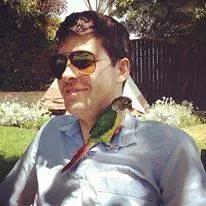One way to express the sentence Yuko's eyes are big in Japanese would beゆこさんの目は大きいです, which is perfectly acceptable. However, using the particle は, we could write the sentence without the possessive particle の like this: ゆこさんは目が大きいです.
In the latter sentence, which sounds more natural in Japanese, we do not have to directly specify that the big eyes are Yuko's. It is inferred that they belong to her because she is the topic of the sentence.
The table below includes more examples of this pattern using は instead of の.
| English | Japanese |
|---|---|
| Yuko's eyes are big. | ゆこ さん の 目 は 大きい です。yuko san no me wa ookii desu. |
| Yuko has big eyes. | ゆこ さん は 目 が 大きい です。yuko san wa me ga ookii desu. |
| Her father is a teacher. | 彼女 は お父さん が 先生 です。kanojo wa otousan ga sensei desu. |
| Her new paintings are really beautiful. | 彼女 は 新しい 絵 が とても きれい です。kanojo wa atarashii e ga totemo kirei desu. |
| Jon's house is old and near the park. | ジョン さん は 家 が 古くて、 公園 の 近く です。jon san wa ie ga furukute, kouen no chikaku desu. |
Your questions are stored by us to improve Elon.io

